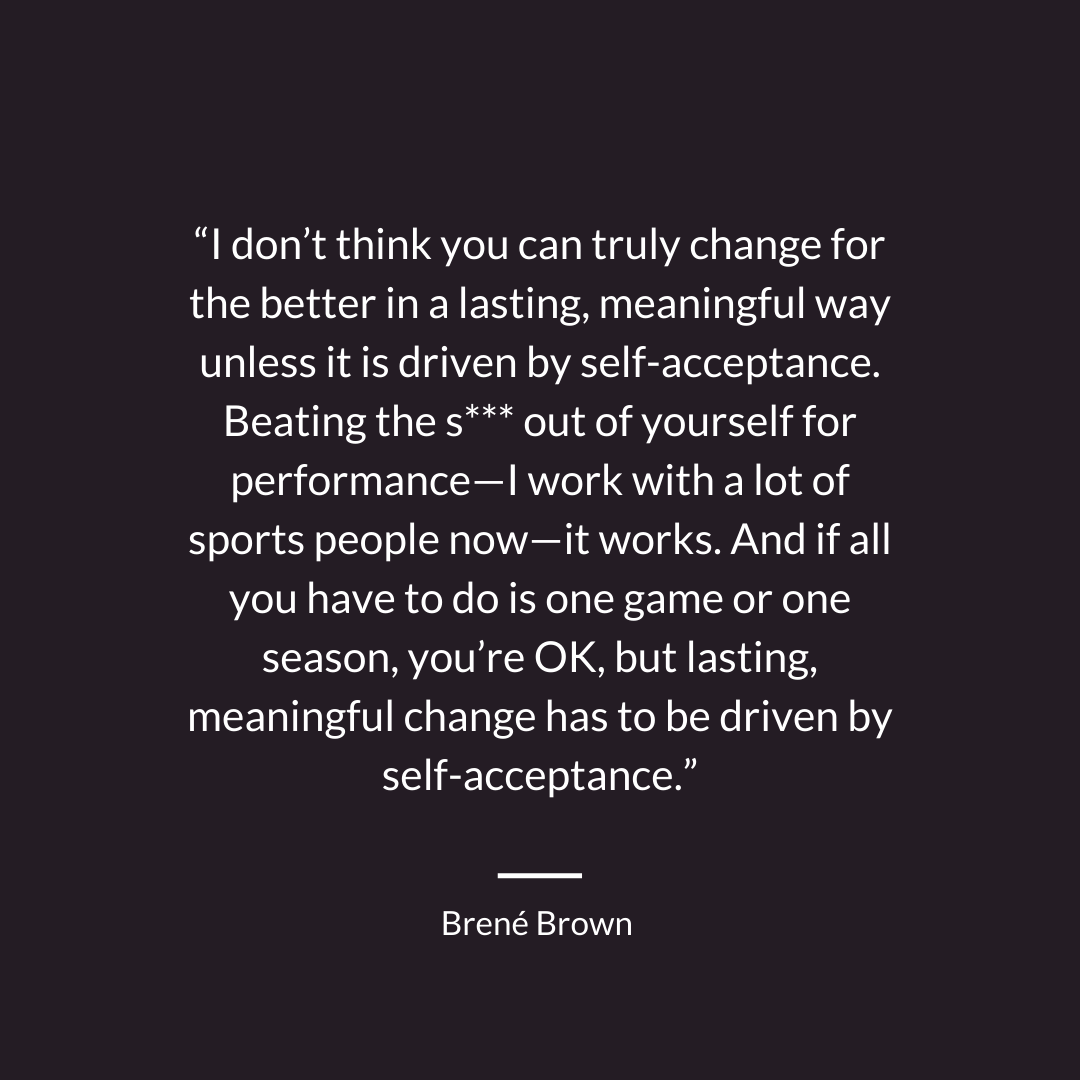
Learning Self-Acceptance in Recovery
Photo from Unsplash
Originally Posted On: https://addictionfreedomnow.com/blog/self-acceptance-in-recovery/
It can be difficult to accept the things about ourselves we don’t like. Perhaps you feel ashamed of certain habits, behavioral patterns, emotions, or even physical features. On the path to recovery, it’s important to know you are lovable just as you are right now. You are worthy of acceptance, no matter what sort of baggage or personal struggles you’re dealing with.
Sadly, for many people, the very idea of self-acceptance can seem contrary to their lived experience. Often when we’re scolded, shamed, or loved only on a conditional basis, we learn to be hard on ourselves for the things we (and others) don’t like about us. It seems like something’s wrong with us that we have no control over and which causes us to feel or behave in certain ways.
Shame and self-deprecation may be motivating for change, but only to a point. In the long run, most people will not find this sort of negative motivation sustainable without incurring additional mental and emotional health issues. In the end, focusing so hard on your imperfections and past mistakes only makes your road to recovery harder. If you feel hatred and disgust towards yourself every time you make a human mistake, it becomes that much harder to care about your long-term outcomes. A baseline level of self-respect is needed to get yourself back on a path to healing and growth.
Self-acceptance is not about giving yourself a free pass or evading accountability for your decisions. In fact, if that’s how you’re approaching the concept, you are only setting yourself up for future missteps, damaged relationships, and emotional turmoil. Self-acceptance is about learning to treat yourself like you would a good friend or someone you love unconditionally.
Accept yourself as you are, right now, even if you don’t believe you deserve it. Far from being a way to write off or ignore your issues, this is actually the only way to examine your problems clearly and rationally so that you can move forward with the work that needs to be done. When it comes to working out your problems, self-acceptance can sound like some lofty long-term goal, but in reality, it’s the perfect place to start.
What Is Self-Acceptance?
 Photo from Unsplash
Photo from Unsplash
What does self-acceptance really mean? Is it just a buzzword? Is it a skill that can be learned or something people are born with?
Self-acceptance is, by definition, “the act or state of accepting oneself: the act or state of understanding and recognizing one’s own abilities and limitations.”
To be human is to be inherently flawed and constantly changing. It means we have both strengths and limitations. You may never reach the day where you feel 100% good about yourself. Self-acceptance isn’t about perfection, and it’s certainly not about ignoring your shortcomings or loving everything about yourself. It’s about seeing yourself as you are and accepting that reality.
As researcher and author Brené Brown said, “I don’t think you can truly change for the better in a lasting, meaningful way unless it is driven by self-acceptance. Beating the s*** out of yourself for performance—I work with a lot of sports people now—it works. And if all you have to do is one game or one season, you’re OK, but lasting, meaningful change has to be driven by self-acceptance.”

On the road to recovery, shame or frustration may motivate you to change faster, but those changes may not be lasting or healthy over the long term. The clearest path to effective, long term personal growth is through self-acceptance, self-love, and self-compassion.
What Happens When You Accept Yourself?
Take something you don’t like about yourself and picture it in your mind. What would it feel like to accept this part of you? What mental, social, or emotional hang-ups would you need to overcome to accept it? Sometimes it’s easier said than done, and it can take years of work, consistent support systems, and lots of life experience to get there, but what does it feel like to imagine reaching that point of acceptance?
How might you feel about living inside your own body and mind? When you imagine a future full of self-acceptance, you’ll likely picture yourself feeling a bit more at ease, like you can enjoy yourself again, and like you aren’t compelled to work so hard to impress people or cover up flaws.
“The moment you accept what troubles you’ve been given, the door will open.” -Rumi
Because it’s such a deeply personal concept, there is no way to list all the possible benefits and possibilities that may be unlocked through self-love and self-acceptance, but what a beautiful journey to consider. By accepting yourself as you are, you may find you have much more to offer the world than you previously believed. You may come to believe that a path to healing and growth is not so impossible as it once felt.
Perhaps you feel more motivated to create, learn a new skill, or pursue neglected passions. Likely you will experience more confidence and improve your ability to speak up for yourself, ask questions or make suggestions. Remember, part of self-acceptance means knowing your limitations. If you’re not constantly afraid of looking dumb, you’ll ask more questions and, in turn, learn more. You may be more willing to take risks.
When people learn self-acceptance, they often feel like they have more time to simply enjoy their lives. When you’re not obsessing over whether or not you look good enough, for example, your mental bandwidth is freed up to focus on things that bring you enjoyment or comfort. You’ll have more mental and emotional space available for the good things in life because you know and accept yourself well enough to not focus so much on what others may be thinking of you.
If you are unable to accept yourself as you are—your strengths and limitations alike—perhaps you’ve found it difficult to accept others as well. Those who cannot accept their own shortcomings often project that self-loathing in a way that causes them trouble analyzing the behaviors and personalities of others. Subsequently, they may label others in a reductive way, like believing everyone is either “good” or “bad.” Practicing acceptance towards your own self can help you see other people in a more real, well-rounded and compassionate way. This could improve your personal relationships and your ability to communicate with others in general.
When you accept yourself, you may not feel as much urge to escape yourself. Often, addiction of any kind (food, drugs, alcohol, sex, money, television, etc.) is rooted in a desire to escape the intensity of unpleasant feelings like low self-esteem, guilt, and shame. This is paradoxical, as many times, the vice we turn to in order to avoid shame causes us to end up feeling more shame than ever.
We can’t shame ourselves out of shame. We can, however, learn to accept ourselves and use that acceptance as a foundation for analyzing and correcting our underlying issues.
How Do You Start Loving and Accepting Yourself?
 Photo from Unsplash
Photo from Unsplash
Self-acceptance sounds amazing, but how in the world do you actually start to love and accept yourself? Maybe you’ve never felt truly seen for who you are, and this has left you with a lifelong need to pretend you’re someone else in social situations or interpersonal relationships. How does someone start practicing self-acceptance if they have no examples of what their true self looks and feels like?
Depending on your individual history and mental health factors, the answer to this question may look different. Perhaps there are core beliefs blocking your ability to feel worthy of acceptance. There could be PTSD or c-PTSD at play, in which case you may benefit from professional counseling to begin addressing these issues.
The path to self-acceptance is deeply personal. You can begin many different ways depending on your individual needs, goals, and personality. Many people find positive affirmations helpful. For example, stand in front of the mirror each morning and say sweet things to yourself like:
- I am beautiful
- I deserve love.
- I accept myself.
- I am worthy.
Positive affirmations may not feel true when you first say them to yourself, but keep trying. If the examples above feel corny and disingenuous in your situation, you can change your focus and only say things that you know to be true. For example, naming your negative feelings out loud and promising yourself you won’t feel that way forever—even when you aren’t feeling your best, and it’s hard to believe.
You could try:
- I feel really sad today; I would really like a hug from someone I love.
- I am feeling lonely right now, and I am going to let myself eat this piece of chocolate because I know it will make me feel a little better.
- I know that I made a mistake, but I am learning and can do better.
It can also be useful to journal, writing out your emotions and experiences to begin to get to know yourself more intimately.
If you have someone in your life who you trust deeply, practice being vulnerable and open with them. If it feels safe and appropriate to do so, share something you’re struggling with or feeling bad about. Note how it feels to be accepted by someone else even when you don’t feel you’re worthy of it, then imagine how it might feel if you could give yourself that same feeling of acceptance and unconditional support.
There is no single correct way to start loving and accepting yourself, but all paths to self-acceptance require being honest with yourself about where you are in that moment.
How to Accept Yourself
 Photo from Unsplash
Photo from Unsplash
The only place to start is right here, as you are, now. As much as you can tolerate it, sit with yourself. A common means of nurturing self-acceptance is through meditation or mindfulness exercises.
Meditation is generally done in a seated position, eyes closed and in silence or with a guide. You can also practice mindfulness, which can be done anytime throughout the day by simply bringing your full attention to the task or activity you are participating in. Live in the moment and focus on the contributions you can make to a situation rather than wallowing in self-doubt or assuming your input isn’t valued.
Personal Interests as Self-Acceptance Exercises
In addition to affirmations, journaling/writing, and practicing emotional vulnerability in a safe environment, you can try a highly personal approach to self-acceptance that involves focusing on activities that you enjoy or excel at.
Start by choosing something you love to do (or used to love). It can be simple, like drawing or jumping rope. The journey to self-acceptance should not feel tedious or depressing. Learning to accept yourself isn’t just a reaction to feeling hurt or sad. It’s equally important to accept the things you’re good at. Learn to love yourself through the things you love.
Paint, dance, read, fish, run, sing, learn a new language, travel: anything you are naturally drawn to and makes you feel closer to the true you. If you’re not sure or have neglected your passions for many years, take some time to explore. Take a cooking or pottery class, spend time in nature, or try new foods. You never know what new interests you may find or how they might positively affect your self-perception.
Learning about yourself through the things you like is a great building block for a healthy relationship with yourself.
Self-Acceptance Quotes
You are not alone on this journey. You can continue reading books on self-acceptance or seek inspiration from people who have been through it before:
- “Wanting to be someone else is a waste of the person you are.” -Marilyn Monroe
- “You yourself, as much as anybody in the entire universe, deserve your love and affection.” -Sharon Salzberg
- “Innocence ends when one is stripped of the delusion that one likes oneself.” -Joan Did-ion
- “You are imperfect, permanently and inevitably flawed. And you are beautiful.” -Amy Bloom
For more on learning about self-acceptance and personal growth, follow us on social media and subscribe to our newsletter. We are here to support you in your recovery journey. Remember, you’re not alone.
